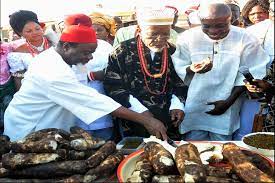
In the world, there are different regions and different people. These people have their different cultural and social differences and problems. In every society, the problems man faces can be man-made or natural.
Man-made problems people exhibit are injustices, marginalization, discrimination, tribalism, social stratification and prejudice. These problems may show in different dimensions. It can be religious, political, social and economic.
There is hardly an ethnic group and nation you won't see these problems. There are several experiences of an individual, region or nation trying to dominate the other or feel superior to the other people. It has been major problem humanity has been facing for a long time.
A caste system share huge similarities with these social problems that are man-made. It is a form of social stratification where someone's status in society is determined by birth and marriage for a lifetime. In this system, people are characterized by a certain social hierarchy.
In southeastern Nigeria, there exist a caste system called the Osu caste system. It has been existing for a very long time making it one of the world's longest existing caste systems. It is believed to be as old as the existence of Igbo land. Other old practices are the human sacrifice offering, the killing of twins and the long-debated reincarnation.
The Osu caste system is a tradition that was passed from one generation to the other. It is so strong that globalization, western education and even civilization weren't able to stop them. People practice it strictly for fear of serious consequences.
A Brief Illustration of the Osu Caste System in Igbo Land
Just like many caste systems, determining how the Osu caste system started is difficult. The story behind when it started is quite unclear. Many think that it started when the beliefs about human sacrifice to cleanse the land and so on were rampant. They think people will like to purchase a slave or kidnap one.
Many people opine that the Osu caste system is from the Nri kingdom. There was this belief that Nri, a very powerful kingdom have certain hereditary powers. This gives them the right to cleanse any region or kingdom where they think there is an abomination in the past. Any kingdom that refused to bid to its will is regarded as impure. People from this kingdom are known as untouchable or rather, Osu.
According to the system, someone will easily become an Osu when their Osu parents give birth to them. Getting married to an Osu will also make the other person an Osu. Another way someone is considered an Osu is when people are atoned for a crime by dedicating themselves to the gods. An example of this is when a mother refuses the killing of her twin babies. When someone becomes an Osu, it is expected to be permanent.
This begs the question - how do you identify an Osu? It is not hard to spot an Osu. They make marks on some parts of their body. Parts of the body like the finger or ear are cut to know them. There is also a belief that they have a strong body odour. In some works, the writers stated that the odour won't go even with the most expensive perfume. The argument about how true this is will be a debate for another day.
An Osu can also be identified from where they reside. Most of them are found to stay on the outskirts of the village. As mentioned earlier, Osu is dedicated to serving the gods.
They are often assigned the role of subjects of chief priests. You can sometimes find them holding vigils in the village to protect couples that are with children susceptible to kidnapping. These vigils happen when the master and their slaves are out to farm.
This does not stop here. Osu is usually the first on the battlefront when war breaks out between tribes. They are given pots full of charms to carry with them. They are feared because they believe the Osu represents a living being for the gods. With these illustrations, it is safe to say that Osu play important role in the social and cultural existence of the Igbo land.
Discrimination of Osu in Igboland
Osu faces so much discrimination in society. An Osu is not allowed to associate, socialize or play with a non-Osu person. They are believed to be inferior and untouchable as mentioned earlier. Many people wouldn't want to be Osu because of this discrimination.
People who are not Osu by birth only become one in dire situations. Osu is usually the first to consider when trying to offer human sacrifice. When a high priest dies, three Osu are usually offered and buried alongside the high priest.
An Osu is not allowed to build a house that faces the street. If they should establish any building of their own, it should face the bush.
Even when civilization entered Nigeria, an Osu is still discriminated against. They are not allowed to work in some places. They are given second class citizen status because many believe they are impure. The knowledge that was passed from generation to generation about an Osu lineage being permanent couldn't leave the memories of many. Today, an Osu finds it hard to get married.
There are many occasions where a marriage proposal is turned down because of the Osu status. Many people whose parents are Osu denounce it and don't talk about it to the person they want to marry. Some families who are cautious about Osu's status go the extra mile to ask about the family before getting married.
Existence of Osu in the Present Day
There are still traces of discrimination in this present day. As pointed out earlier, many Osu usually has trouble with marriage issues. However, they are accepted in society by many today owing to the coming of Christianity. Christianity teachings are against most past Igbo practices including the Osu caste system. Many Christians don't bother about it again.
Again, due to the various human rights acts and reforms, Osu can now build the houses they want and get the job of their dreams. Even when a community still recognize the Osu status, an Osu can travel to a civilized city and settle there. There, their status is concealed and they can live their life.
In conclusion, the Osu caste system in Igbo land is gradually becoming a thing of the past. Many people are now accepted in society. Soon or later, it will be stories generations tell.





















